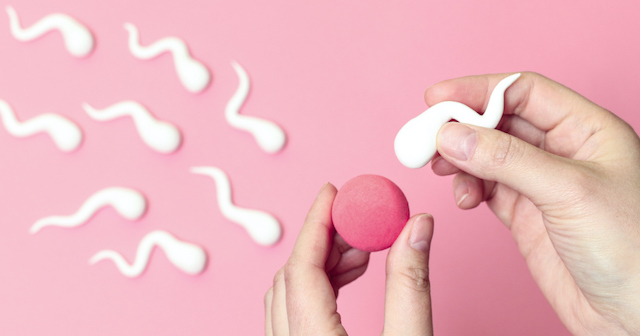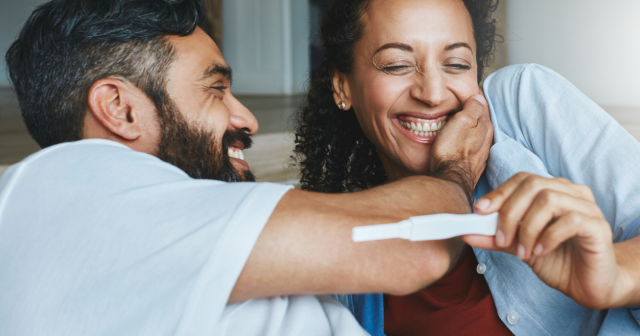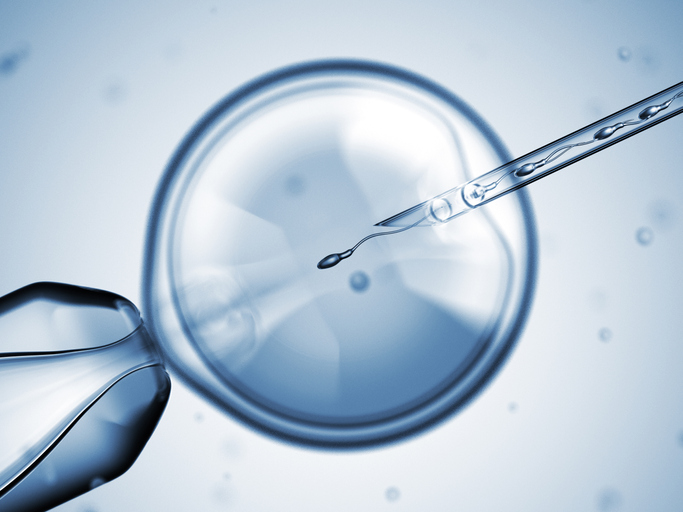Knowing when you're likely to release an egg (ovulate) can help you plan or avoid pregnancy. Find out when ovulation occurs in the menstrual cycle, and when you can get pregnant.
During the menstrual cycle, an egg is released from one of the woman’s ovaries and travels down the fallopian tube.
The egg only lives for 24 hours after ovulation, and a sperm must meet the egg within that period for pregnancy to happen. However, this doesn't mean that a woman has to have sex on the day of ovulation, as sperm can survive in the fallopian tubes for several days after sex and still fertilise the egg when it's released from the ovary.
When does ovulation happen?
It's difficult to pinpoint exactly when ovulation happens, unless you're practising fertility awareness (FPA guide to natural family planning). However, ovulation usually happens 10-16 days before the start of a woman's next period.
The menstrual cycle is counted from the first day of a woman’s period. This is day one. Some time after her period she will ovulate, then 10-16 days after this she will have her next period. The average cycle takes 28 days, but shorter or longer cycles are normal.
“It’s not accurate to say that women are fertile on day 14 of the menstrual cycle,” says Toni Belfield, a specialist in sexual health information and a trained fertility awareness teacher. Being fertile on day 14 might be true for women who have a regular 28-day cycle, but it won’t apply to all women.
“If your cycle is 35 days long, you're not going to be fertile on day 14 of your cycle. You’re more likely to be fertile around days 19 to 25. If you have a shorter cycle – for example, 23 days – you might ovulate around days 7 to 13."
Sperm can survive in a woman's body for several days after sex. If you want to get pregnant, having sex every couple of days will mean there are always sperm waiting in the fallopian tubes to meet the egg when it's released.
If you think you might be pregnant, read about the signs and symptoms of pregnancy.
How to avoid pregnancy
To avoid pregnancy, use contraception. There are many methods of contraception you can choose from. Condoms are the only method that help protect against both pregnancy and sexually transmitted infections (STIs).
It's difficult to know exactly when ovulation happens. Therefore, if you're trying to avoid pregnancy, there isn’t a "safe" time of the month to have unprotected sex.
“A woman who doesn’t want to become pregnant shouldn't take the risk,” says Belfield.
For a woman with a shorter menstrual cycle – for example, 23 days – having unprotected sex during her period could put her at risk of pregnancy. “Sperm can hang around for seven days, and she might ovulate very soon after her period has finished.”
Some women use natural family planning to plan or avoid pregnancy, but this needs to be taught by an expert. "Working out your fertile time is very dependent on knowing your cycle and knowing your fertility indicators, which takes observation,” says Belfield.
It involves monitoring vaginal secretions, taking your temperature every day, and keeping a calendar of your cycle, to help pinpoint when ovulation is likely to be happening.
Vaginal secretions change during the menstrual cycle and become thinner and stretchy around ovulation – a bit like raw egg white.
The most effective methods of contraception are long-acting reversible contraceptive (LARC) methods, such as the contraceptive injection , contraceptive implant , intrauterine system (Mirena) and intrauterine device – IUD .
Emergency contraception
If you’ve had unprotected sex, or your contraception has failed, emergency contraception can help prevent an unplanned pregnancy.
There are two types: the emergency contraceptive pill, and the IUD.
The emergency contraceptive pill
Also known as the "morning after pill", this needs to be used within a few days of unprotected sex. Some emergency pills need to be taken within three days (72 hours) of unprotected sex.
Another emergency pill, called ellaOne, is a relatively new method. It can be taken up to five days (120 hours) after sex and is only available with a prescription. For more information about ellaOne, speak to a doctor or nurse.
The IUD
This can be used up to five days after unprotected sex, or up to five days after the earliest time you could have ovulated.
You can get the emergency pill and the IUD free (in the UK) from:
- a doctor surgery that provides contraception
- a contraception clinic
- a sexual health clinic
- some genitourinary medicine (GUM) clinics
- a young person's clinic
You can also get the emergency pill for free from:
- some pharmacies
- most NHS walk-in centres and minor injuries units
- some Accident and Emergency (A&E) departments
You can buy the emergency pill from most pharmacies if you're aged 16 or over, and some privately run clinics, such as bpas or Marie Stopes. The cost varies, but is around £26 .
Read more about periods.




